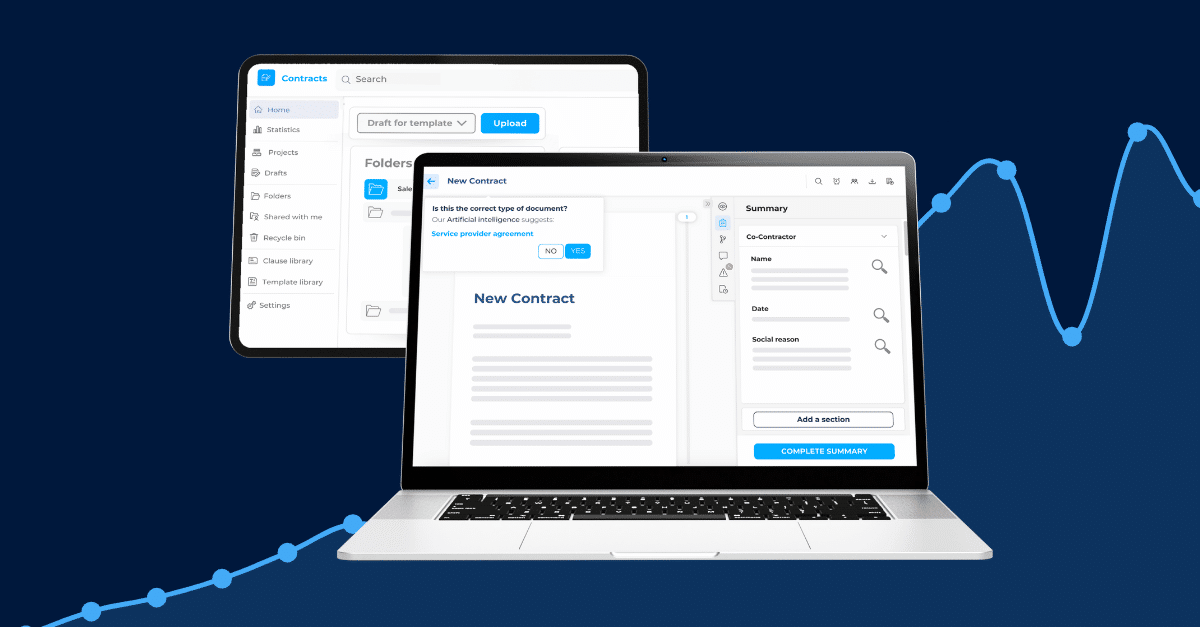Contracts serve as the foundation for business relationships and operations. Each agreement contains numerous obligations that require careful monitoring and management. Effective contract obligation tracking is essential for maintaining compliance, mitigating risk, and maximizing the value derived from business agreements.
This comprehensive guide explores the importance of contract obligation tracking, common challenges organizations face, and practical strategies for implementing robust tracking processes that drive accountability and business success.
What Is Contract Obligation Tracking?
Contract obligation tracking refers to the systematic process of identifying, monitoring, and managing all commitments outlined within business agreements. These obligations represent the specific actions parties must fulfill according to contractual terms.
Obligation tracking encompasses several key elements:
Modern Contract Lifecycle Management (CLM) platforms provide automated tools for tracking obligations throughout the entire contract lifecycle, from negotiation through execution and renewal.
Why Is Tracking Contract Obligations Critical?
Effective obligation tracking delivers significant benefits across multiple business functions.
Ensuring Compliance
Organizations must fulfill their contractual commitments to avoid breaches and associated penalties. Additionally, tracking helps businesses ensure vendors and partners meet their obligations, protecting company interests and supporting regulatory compliance.
Reducing Financial Risk
Missing contractual obligations often results in financial penalties, lost revenue opportunities, or damaged business relationships. Proactive tracking minimizes these risks by ensuring timely performance of required actions.
Optimizing Resource Allocation
Understanding upcoming obligations allows teams to allocate resources appropriately, preventing last-minute scrambles to meet deadlines.
Improving Vendor Management
Tracking supplier obligations provides insights into vendor performance, supporting more informed decisions about contract renewals and relationship management.
Enhancing Strategic Decision-Making
Comprehensive obligation data offers valuable insights into contractual relationships, enabling better planning and more strategic approaches to contract obligation management.
Common Challenges in Contract Obligation Tracking
Organizations frequently encounter obstacles when attempting to track contractual obligations effectively.
Decentralized Contract Storage
When contracts are stored across multiple locations or departments, extracting and tracking obligations becomes extremely difficult. This fragmentation creates blind spots in obligation management.
Manual Tracking Processes
Spreadsheets and calendar reminders are inadequate for managing complex contractual obligations across numerous agreements. These manual approaches are prone to human error and oversight.
Unclear Responsibility Assignment
Without clear ownership of specific obligations, accountability suffers. Team members must understand exactly which contractual requirements they are responsible for managing.
Limited Visibility
Stakeholders across legal, procurement, finance, and operations departments need visibility into relevant obligations. Poor information sharing creates silos that hinder effective tracking and collaboration.
Complex Contract Language
Contractual obligations are often embedded within dense legal language, making them difficult to identify and extract without specialized expertise or technology assistance.
Key Features of Effective Obligation Tracking Systems
Modern contract management solutions offer specialized features designed to address the challenges of obligation tracking.
Centralized Contract Repository
A secure, centralized platform for storing all contracts provides the foundation for effective obligation tracking. This ensures all agreements are accessible and searchable when needed.
Automated Obligation Extraction
Advanced CLM platforms leverage artificial intelligence to automatically identify and extract obligations from contract documents, saving time and improving accuracy during contract review.
See how automated contract review with AI works
Customizable Notification Systems
Automated alerts notify responsible parties about upcoming deadlines, ensuring timely action on contractual commitments.
Role-Based Access Controls
Secure, role-appropriate access ensures team members see only the contracts and obligations relevant to their responsibilities while protecting sensitive information.
Contract Performance Analytics
Reporting capabilities provide insights into obligation fulfillment rates, helping organizations identify patterns and improve contract compliance over time.
Integration Capabilities
Connections with other business systems (ERP, CRM, financial platforms) create a more comprehensive view of contractual relationships and their impact on business operations. This allows organizations to streamline workflows and improve overall efficiency.
Best Practices for Implementing a Contract Obligation Tracking Process
Establishing an effective obligation tracking system requires a strategic approach:
Measuring the Success of Your Tracking Strategy
Evaluating the effectiveness of your obligation tracking process requires monitoring several key performance indicators:
Regular assessment of these metrics helps organizations refine their tracking processes and maximize their return on investment.
Building a Culture of Accountability Through Better Tracking
Effective contract obligation tracking transforms contractual commitments from potential liabilities into strategic assets. By implementing robust tracking processes supported by appropriate technology, organizations improve compliance, reduce risk, and extract maximum value from their business relationships. The most successful organizations go beyond merely implementing tracking tools – they build cultures where contractual accountability is embedded in daily operations. This cultural shift ensures obligations are not merely tracked but actively managed as essential components of business success.
CLM Software Solution for Your Company
For organizations looking to enhance their contract management capabilities, investing in a comprehensive CLM solution with strong obligation tracking features represents a strategic decision that delivers significant returns. A modern contract lifecycle management serves as the single source of truth to easily manage contracts, workflows, reports, contract tracking, and contractual obligations.
DiliTrust offers a AI powered contract management platform specifically designed to address these challenges, providing businesses with the tools needed to track obligations effectively while ensuring security and compliance across the entire contract lifecycle.
Ready to take the next step? Book a demo with us today to discover how DiliTrust CLM can be tailored to your organization’s needs and drive your contract management success.




